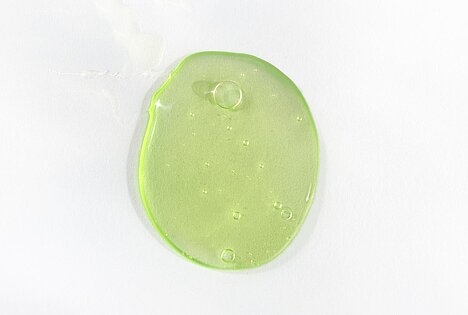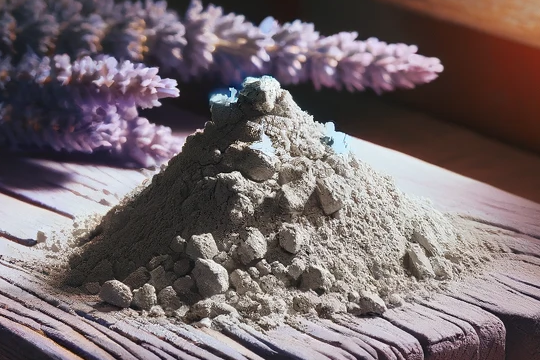Silicic acid

Silicic acid is a compound of silicon and water that occurs naturally and is also known as silica. Silicon is a trace element that is important for the formation of connective tissue, bones and cartilage. Silica can be used as a dietary supplement for dogs to support the health of skin, coat, joints and teeth.
The benefits of silica for dogs
Silica has several positive effects on the dog's body:
- It promotes the formation of collagen, a protein responsible for the elasticity and firmness of the skin. As a result, it can prevent or alleviate skin problems such as dandruff or eczema.
- It strengthens the coat and gives it shine and suppleness. It can also reduce or stop hair loss.
- It supports the function of joints and cartilage by improving their structure and inhibiting inflammation. This can prevent osteoarthritis or other joint diseases or alleviate their symptoms.
- It strengthens the teeth and gums by promoting the mineralization of tooth enamel and preventing the formation of tartar.
The disadvantages of silica for dogs
Silica is not without risks for dogs. There are a few points to bear in mind:
- The dosage must be strictly adhered to, as an overdose can lead to gastrointestinal complaints or kidney problems. The recommended daily dose is 1 gram per 5 kilograms of body weight1.
- The quality of the silica must be high, as inferior products may contain impurities that are harmful. You should only buy natural and certified products1.
- The effect of silica is not immediately visible, but only after several weeks or months. You should therefore not expect your dog's condition to improve quickly.
- The use of silica should always be discussed with your vet, as it may interact with other medications or supplements.
Silica can be a useful addition to a dog's diet if a few precautions are taken. It can improve the health of the skin, coat, joints and teeth and thus increase the dog's well-being.
If you notice any signs of hypersensitivity or poisoning in your dog, you should see your vet immediately. We are not a substitute for a vet, but we try to be as accurate as possible. Every dog reacts differently and we recommend you get a second opinion or consult your vet if in doubt.
Stay healthy and take good care of your four-legged friend!😊
Similar to Silicic acid
Silica gel, often incorrectly referred to as "silica gel", is a highly porous, granular form of silicon dioxide made from sand. It is best known for its ability to absorb moisture, making it a...
Bentonite is a fine powder consisting of various clay minerals. The most important are montmorillonite, kaolinite and illite. These minerals have a platelet-like structure that can swell in water...
Diatomaceous earth is a natural substance that contains no chemical additives. It is rich in silicon and other minerals that are important for the health of skin, hair and nails. Diatomaceous earth...
Zeolite is a naturally occurring, microporous mineral with a unique crystalline structure consisting of aluminum, silicon and oxygen. Its special ability to exchange ions and adsorb molecules makes...



